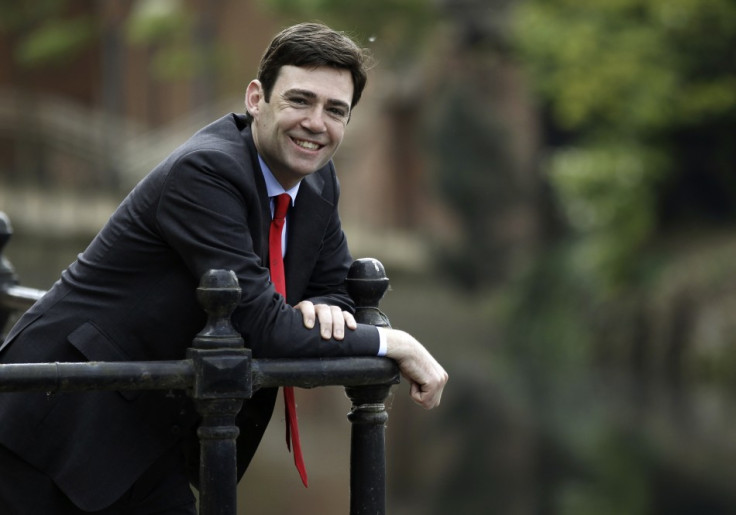TTIP: Labour Vows to Push Bill to Protect NHS from Privatisation

In a move that will appease trade unions and anti-free trade campaigners, Labour is to back a bill that would protect the NHS from privatisation, as protests against the controversial Transatlantic Trade and Investment Partnership (TTIP) continue.
The party is attempting to steer the public debate towards the health service as next year's General Election approaches. Despite the assurances of officials from both Brussels and Westminster that public services are exempt from the trade agreement between the EU and US currently under negotiation, which would be the biggest trade agreement in the world, fears continue to mount that it would blow the NHS open to private US investors.
One of the main fears is that the investor-state dispute settlement (ISDS) clause of TTIP – which is not guaranteed to be included in a final agreement after strong opposition from politicians in Europe's largest economy, Germany – would make the privatisation that has taken place in the NHS to date irreversible.
ISDS is a common facet of free trade and has traditionally been used to protect the overseas assets of investors, as part of bilateral trade agreements. However in recent years it has been commonly used by corporations to sue governments for loss of profits.
Tobacco giant Philip Morris International, for instance, has used the ISDS clause of the free trade agreements Switzerland has negotiated with both Australia and Uruguay to attempt to get compensation from those governments following the introduction of anti-smoking legislation (such as plain packaging).
Andy Burnham, the shadow health secretary, has previously voiced his concerns over the inclusion of the NHS in TTIP.
In a visit to Rochester and Strood, where the NHS is forming a key part of the debate in the run up to the by-election, Burnham has said that Labour will hold a vote the day after the by-election (which takes place on 20 November) to exempt the NHS from TTIP, by removing the section 75 rules which mean all NHS contracts must go up for compulsory tendering.
"This is a unique situation because the bill is coming on to the table the day after the by-election. We've checked with the parliamentary authorities and we've been assured that the winning candidate could be sworn in during the morning and vote on the bill after that. Our candidate Naushabah would do that and will challenge those from the other parties to say they would do the same," Burnham said.
It backs repeated comments made to IBTimes UK from Labour politicians, in which they have questioned the inclusion of ISDS and the NHS in TTIP. In the recent free trade agreement between the EU and Canada (Ceta), the airline sector was made exempt, while culture sectors are thought to have been already removed from TTIP, at the request of the French, creating a clear precedent for exemption.
Earlier this year, the shadow trade minister Ian Murray told IBTimes UK: "There's no doubt the NHS could be specifically exempt from any deal. There are good grounds for that. That's certainly the position of the Social Democrat members of the European Parliament, and Labour is part of that. They're very much of the view that the general utilities reservation [which would exempt public services] and ISDS are the red lines for them – and for us as well."
It's a view that was echoed by the Labour MEP for North-East England Jude Kirton-Darling, who told this publication last week: "We don't want ISDS in a trade agreement with Canada or the US. The way the balance of power in the European Parliament is now, you need to have the Social Democrat Group on board to get something through, so that's a strong message to be sending. A number of MEPs were in Washington this week and that's the message they were sending.
"On TTIP: there's no rationale for having ISDS in Ceta or TTIP. We have quite adequate ways for companies to defend themselves in our legal systems. It's inappropriate when you've got mature legal systems which balance public interest and private investors' rights to add in a layer of secretive tribunals."
A poll conducted by Survation on behalf of the trade union Unite found that 76% of voters in Rochester and Strood opposed the inclusion of the NHS in TTIP and wanted David Cameron to veto its inclusion.
Unite's Secretary General Len McClusky said: "The future of our NHS is what really matters to voters and their families in Rochester and Strood and it's going to be what really matters to voters at the next general election. When most voters learn that the NHS is at risk of irreversible privatisation because of the trade deal called TTIP they expect David Cameron to act and be prepared to veto the deal. This is not an isolated poll, a majority of voters across a number of marginal Tory constituencies all want the government to protect the NHS from TTIP."
Some confusion remains as to whether public services will technically be included in TTIP. At her parliamentary hearing prior to her official accession to the position of European Trade Commissioner, Cecilia Malmström said that they were not on the table for negotiation, but that individual European governments would be free to enter independent discussions with the US about their inclusion.
The UK Trade Minister Lord Livingston told journalists at a briefing in September, at which IBTimes UK was present, that the government had no plans to exclude the NHS or any other public services from discussions. However, the UK government has not responded to requests from this publication as to whether they will negotiate their individual inclusion.
© Copyright IBTimes 2025. All rights reserved.






















